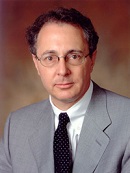 |
| Merck CEO Kenneth Frazier |
A struggling Merck today took out its budget ax and prepared to hack out 8,500 jobs in a major, and long anticipated, restructuring.
The pharma giant ($MRK) announced that it will begin a top-to-bottom reorganization of its R&D and commercial operations, with a plan to narrow and sharpen its development focus while going on the hunt for new programs to add to the pipeline. The company plans to carve out $2.5 billion in annual expenses, eliminating a total of about 20% of its 81,000 staff jobs, when these new cuts are added to existing restructuring plans.
While Merck didn't detail exactly where the cuts will be made, CEO Ken Frazier said today that most of the layoffs will take place in New Jersey, where the company is based. The Summit, NJ, campus--where 1,800 Merck employees work--is being shuttered. Merck had already planned to close its headquarters facility in Whitehouse Station and now plans to relocate workers to other offices in the state.
To help bolster R&D under new research chief Roger Perlmutter, the company plans to devote more cash to deals while zeroing in on diabetes, acute hospital care, vaccines and oncology. Noticeably absent from that list is cardiovascular, a big field for Merck, which has been pursuing a massive program for the cholesterol drug anacetrapib after major failures at rival companies. Steven Cragle, a spokesperson for the company, declined to tell FierceBiotech if the company planned to eliminate any of its efforts in the CV field.
Perlmutter is creating a dedicated unit to focus on the rapid development of MK-3475, a high-profile PD-1 cancer immunotherapy which is one of the few jewels in the pharma giant's pipeline.
 |
| Merck R&D chief Roger Perlmutter |
Merck will also begin an active hunt for external programs that better fit its new R&D profile as well as "out-license or discontinue selected late-stage clinical development assets and reduce its focus on platform technologies."
Merck also spelled out a list of changes for its commercial operations aimed at streamlining that side of the company. A spokesperson for Merck said that the cuts overall would fall 50/50 between R&D and the sales and marketing side, but said there was no added information about how many staffers would be cut in each group, or how Merck's R&D group in Pennsylvania would fare.
Merck plans to substantially reduce the amount of office space it has in New Jersey. As part of that effort, the company today said it would scrap plans to move its corporate headquarters to its campus in Summit, NJ, and instead shutter both the Whitehouse Station offices as well as the Summit complex, moving its corporate staff to existing space in Kenilworth.
The cuts mark a major turning point for Merck, which has long insisted that it has been firmly committed to maintaining a research budget of more than $8 billion a year. But the company's thin late-stage pipeline has haunted Merck for the past two years. Over the past year, the problem developed into a crisis.
Odanacatib, its osteoporosis drug, has been delayed for unspecified safety reasons. Its sleep drug suvorexant has been manhandled by regulators at the FDA, who are demanding that the company revise its application and cut back dosing to a level the company's investigators don't believe works. Sugammadex was recently rejected, for the second time in 5 years, and Tredaptive turned out to be an embarrassing failure.
For Merck, there was no place to run and no place to hide. Without a substantial and fast improvement in its late-stage prospects, the company faced a continued pummeling from generics. And its litany of R&D failures created a narrative that required more than a change at the top.
Perlmutter had started tinkering with R&D months ago, stripping away what he called a layer of bureaucracy while focusing initially on modest cuts. These new cuts, though, will go much, much farther.
"This does not mean a change of strategy," Frazier said somewhat disingenuously in a conference call, adding that outlining its top four disease focuses didn't mean that the company "won't be supporting" other areas of R&D. Frazier was heralded by a number of industry observers when he publicly committed himself to maintaining the R&D budget at a time Pfizer was slashing its research effort. Budget stability was seen at the time as a major part of his R&D strategy for the company.
A billion dollars in cuts will be realized this year, says Merck, with the other $1.5 billion coming in 2015.
Merck will now follow Roche ($RHHBY), Pfizer ($PFE), AstraZeneca ($AZN) and other pharma companies which have executed major corporate realignments. The question now is who gets cut, where Merck will find new programs for the pipeline and what the "new Merck" will look like when all the layoffs are over.
In the meantime, if any Merck staffers would like to help fill in the blanks along the way, you can email tips to FierceBiotech Editor John Carroll at [email protected].
- here's the release
- see the release on the corporate relocation
Special Reports: The 25 most influential people in biopharma 2012 - Kenneth Frazier | 20 Highest-Paid Biopharma CEOs of 2012 - Kenneth Frazier